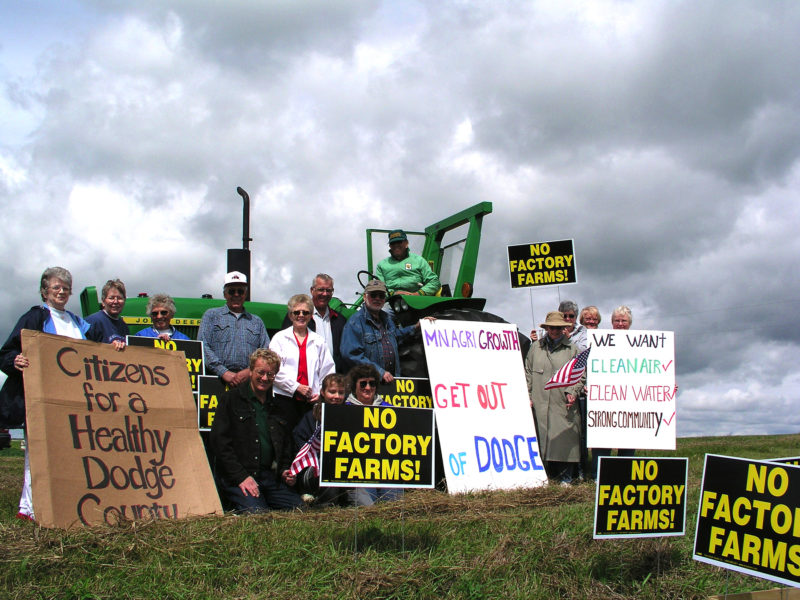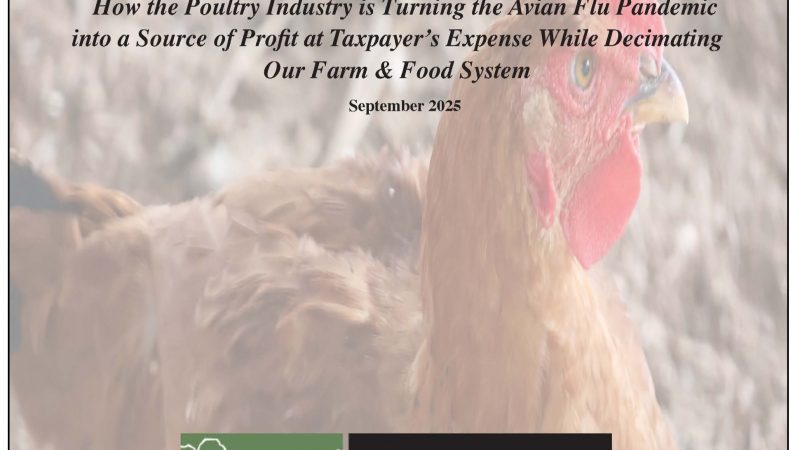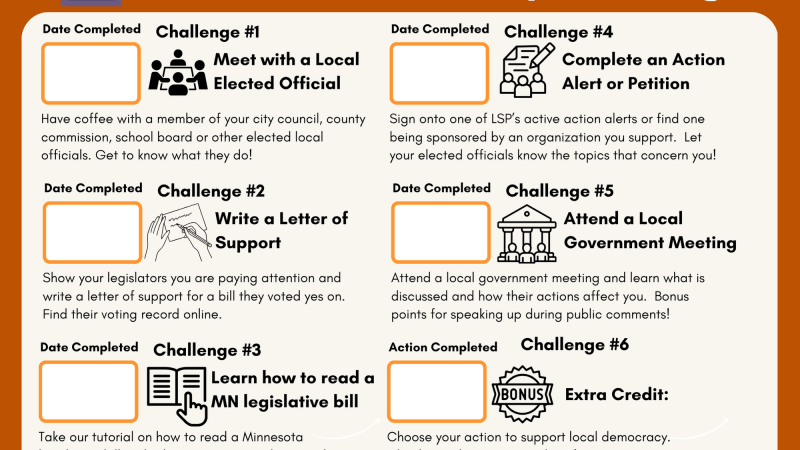Factory farms pose a serious threat to the health and well-being of rural communities. These large-scale industrial operations push family farmers off the land and put independent producers out of business. Local economies suffer as more and more land is consolidated into fewer and fewer hands. Factory farms also pose numerous environmental hazards — such as water pollution, noxious odors, and toxic air emissions — that greatly impact the health of nearby residents. 
Yet, for decades, Land Stewardship Project members have used the power of local democracy to stop factory farms and build more vibrant rural communities. Through local control, townships and counties can block unwanted development, planning instead for projects that put the land and the people first.
LSP members have also worked at the state level for policies that hold factory farms accountable to higher standards. For example, members fought for policies that control hydrogen sulfide emissions and require factory farms to build covered, concrete lined basins for hog manure lagoons.
A recent blog on a factory farm fight LSP is currently involved in highlights what is at stake and what can be accomplished when community members make their voices heard.


